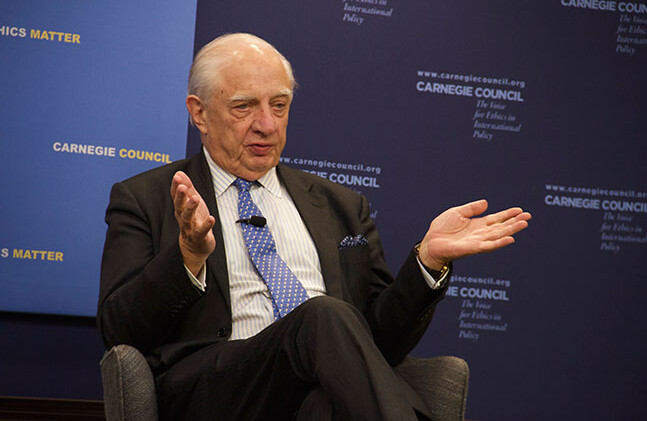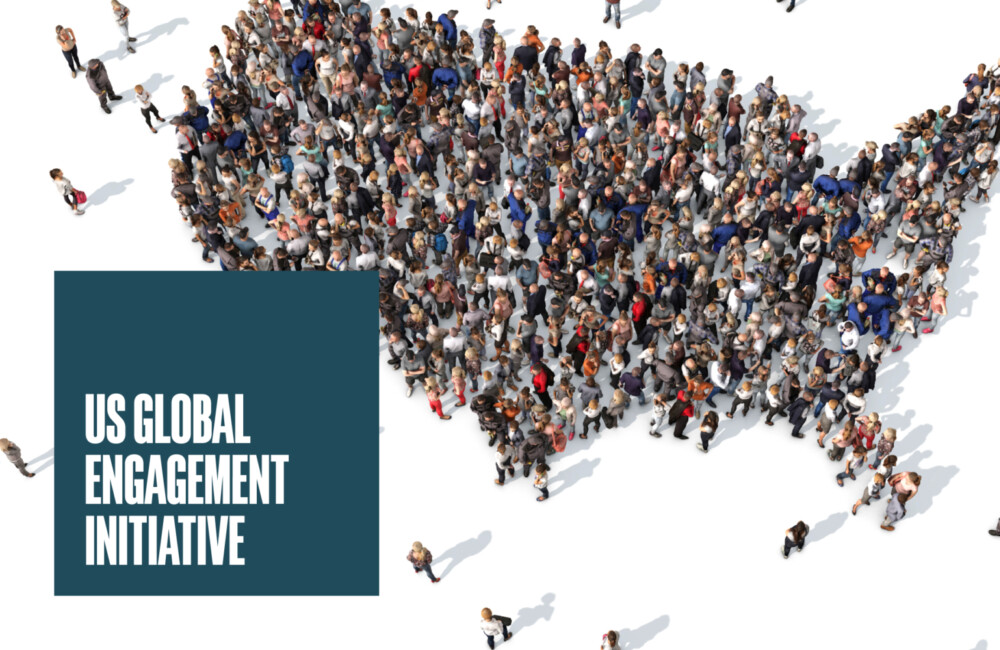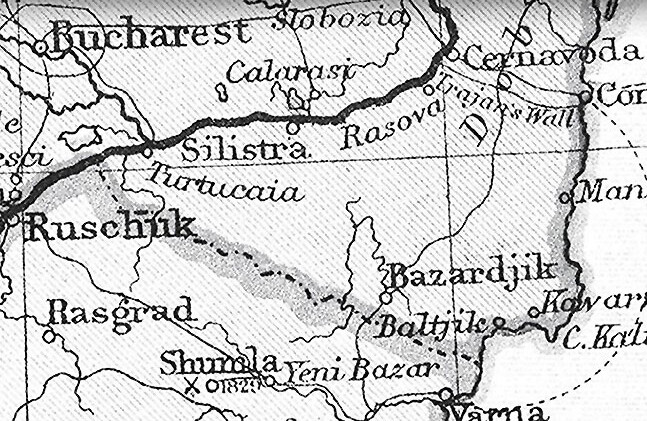Framing ethical perspectives
Multilateralism refers to a group of nations working together for a common goal. It is at the heart of international relations as nation-states form alliances with like-minded countries to take on global issues, such as climate, emerging technology, inequality, and collective security. Carnegie Council sees multilateralism as essential to generating solutions to global problems and a critical component of an ethical present and future.
Featured Multilateralism Resources
Inclusivity, AI & climate governance, and more
FEB 27, 2024 • Video
A Carnegie Council Conversation with the UK Home Secretary
MAR 28, 2024 • Video
Unlocking Cooperation: The Global South and Global North
In the inaugural panel of the "Unlocking Cooperation" series, Ramu Damodaran leads a discussion on forging a path forward for Global South/North collaboration.
OCT 18, 2023 • Video
Unlocking Cooperation: A Global Ethics Day Special Event
In this keynote event for Global Ethics Day 2023, Carnegie Council President Joel Rosenthal led a conversation on the psychology behind cooperation; ways that states, institutions, ...
Subscribe to the Carnegie Ethics Newsletter for more on ethics and international affairs
Related Initiatives
Model International Mobility Convention
The primary goal of the Model International Mobility Convention (MIMC) is to formulate new rules for migration and asylum that can benefit both migrants and refugees as well as their states of origin, transit, and destination.
Carnegie Ethics Accelerator
The Carnegie Ethics Accelerator is a new kind of incubator designed to empower ethics in the face of swiftly evolving challenges in technology and public policies.
Explore Our Multilateralism Resources

APR 12, 2016 • Podcast
The Geopolitics of the Iran Deal: Winners and Losers
In the short term, one of the biggest winners in the Iran deal is China, and the biggest loser is Saudi Arabia. But 10, 15 years from ...

MAR 31, 2016 • Podcast
Refugees on Turkey's Borders: Consequences of Chaos in Syria
Over 4.8 million Syrians have become refugees, mostly in neighboring countries, and this is not the only displacement crisis around the globe, says Kirişci, an ...

MAR 28, 2016 • Podcast
Blood Year: The Unraveling of Western Counterterrorism
ISIS consists of three interlocked threats and is quite different from al-Qaeda, says counterterrorism authority David Kilcullen. To come up with a workable strategy going ...

MAR 4, 2016 • Podcast
A Conversation with Sarah Chayes on Corruption and Global Security
Around the world from Afghanistan to Nigeria, systemic corruption is fueling instability, declares Sarah Chayes in this electrifying conversation. And the United States and other ...

MAR 1, 2016 • Podcast
The Refugee/Migrant Crisis
The migrant/refugee crisis is a defining moral issue for our generation, declares Peter Sutherland, UN special representative on international migration. And proximity should not ...

FEB 24, 2016 • Podcast
Update on Ukraine
David Speedie discusses the situation in Ukraine with Nicolai Petro, including the political crisis for the governing party in Kiev, the situation in Eastern Ukraine, ...

FEB 22, 2016 • Podcast
Beyond a New Cold War? International Security and the Need for U.S.-Russia Cooperation
The United States must stop its demonization of President Putin, according to members of this distinguished panel, all with long associations with Russia and all ...

FEB 15, 2016 • Podcast
What Went Wrong in the Arab Spring?
In the early days of the Arab Spring, non-violent civil resistance helped topple authoritarian governments in Tunisia, Egypt, and Yemen. Yet these apparent triumphs were ...

FEB 11, 2016 • Podcast
In Europe's Shadow: Two Cold Wars and a Thirty-Year Journey Through Romania and Beyond
"What is Europe? Where is it going in this current crisis?" The answers are all here, from what Kaplan describes as the redivision of Europe ...

FEB 2, 2016 • Podcast
Interview with Thomas Weiss on Change and Continuity in Global Governance
The term global governance grew up to describe the fact that there is an increasing number of civil society actors. Nevertheless, these new actors are ...




